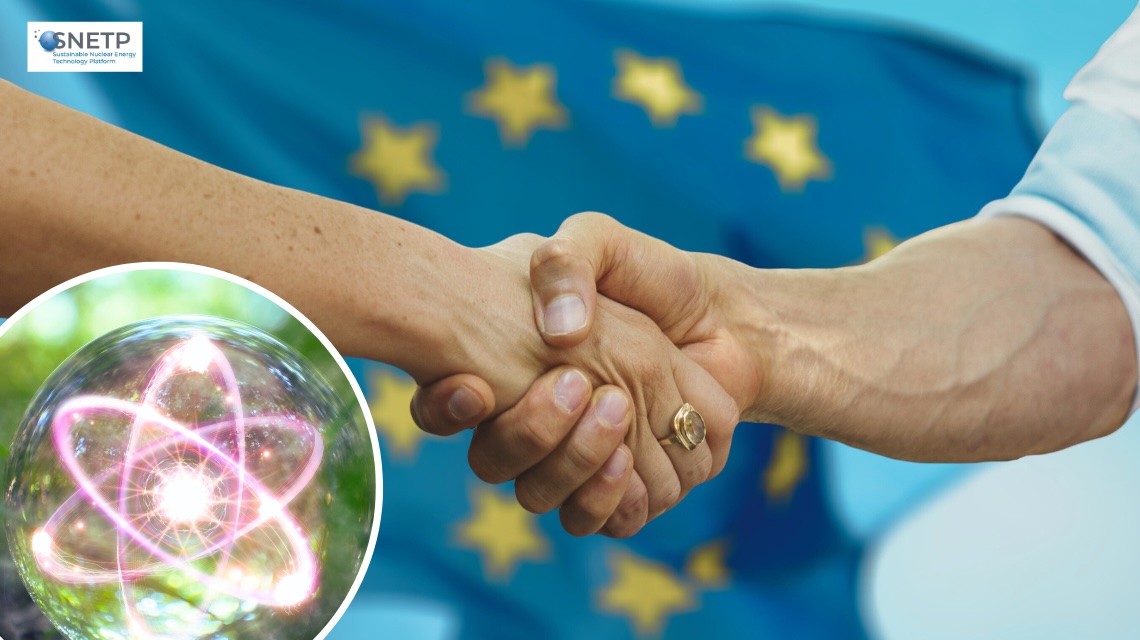Italian National Agency for New Technologies, Energy and Sustainable Economic Development

Energy: Nuclear, ENEA joins European alliance for small reactors
Reinforcing cooperation between research and industry in Europe to promote the development of sustainable nuclear power.
ENEA joins the European Industrial Alliance on Small Modular Reactors (SMR) and leads the European network SNETP[1] on sustainable nuclear technologies, which promotes safe, reliable and efficient civil nuclear systems.
The key objective of the SMR Alliance is to facilitate and coordinate European industry in the development of small modular reactors to help achieve climate neutrality in Europe by 2050, in line with the Repower-EU strategy. In this framework ENEA, through its Nuclear Department, will participate in the Technical Working Groups on SMR and Liquid Lead Cooled Advanced Modular Reactor (AMR-LFR), dealing with financial resources, supply chain, management of radioactive waste and spent fuel, research and innovation, development and training, safety and safeguards.
ENEA will also be an active participant of the more operational groups composed of designers and companies already directly involved in eligible projects to implement SMR and AMR-LFR technologies starting from 2030. The ENEA activities, supported by the subsidiary SIET, of which ENEA holds the presidency, national industry representatives like Ansaldo Nucleare and newcleo, and the Universities of the CIRTEN Consortium for nuclear technological research, will concern research and development services and experimental validation of nuclear systems and components for water-cooled and lead-cooled SMR (LFR - Gen. IV), the latter based on ENEA technology.
“As reported by several EU guidance documents, SMRs can help reduce carbon emissions by 90% by 2040 while increasing the strategic autonomy and resilience of the EU”, pointed out Alessandro Dodaro, Head of the ENEA Nuclear Department. “In this context, it is crucial to ensure compliance with the highest environment, safety, social and labour rights standards, promote employment and competitiveness, involve all stakeholders, including civil society, and the Alliance is progressing in this direction, in close collaboration with Euratom, the JRC and internationally renowned bodies like the IAEA and NEA”.
The SNETP Platform, which includes ENEA and over 120 members from 26 different countries, works in the same direction, aiming to implement new research and development strategies and create innovative and sustainable solutions to harness nuclear energy.
“Our presence in the SNETP Governing Board and in the SMR Alliance enables Italy to establish a direct link between the National Platform for Sustainable Nuclear Energy (PNNS) of the Ministry of the Environment and Energy Security and the Italian participation in European projects and initiatives”, said Mariano Tarantino, Head of the ENEA Division of Nuclear Systems for Energy. “We are leader – he concluded – in nuclear technology development, safety analysis and experimental validation of water-cooled SMR systems and components, but also in the European supply chain on lead-cooled fast reactors, thanks to the experimental infrastructures at the ENEA Brasimone Research Centre and the planning skills available at the ENEA Bologna Research Center, European and international reference points for this technology”.
